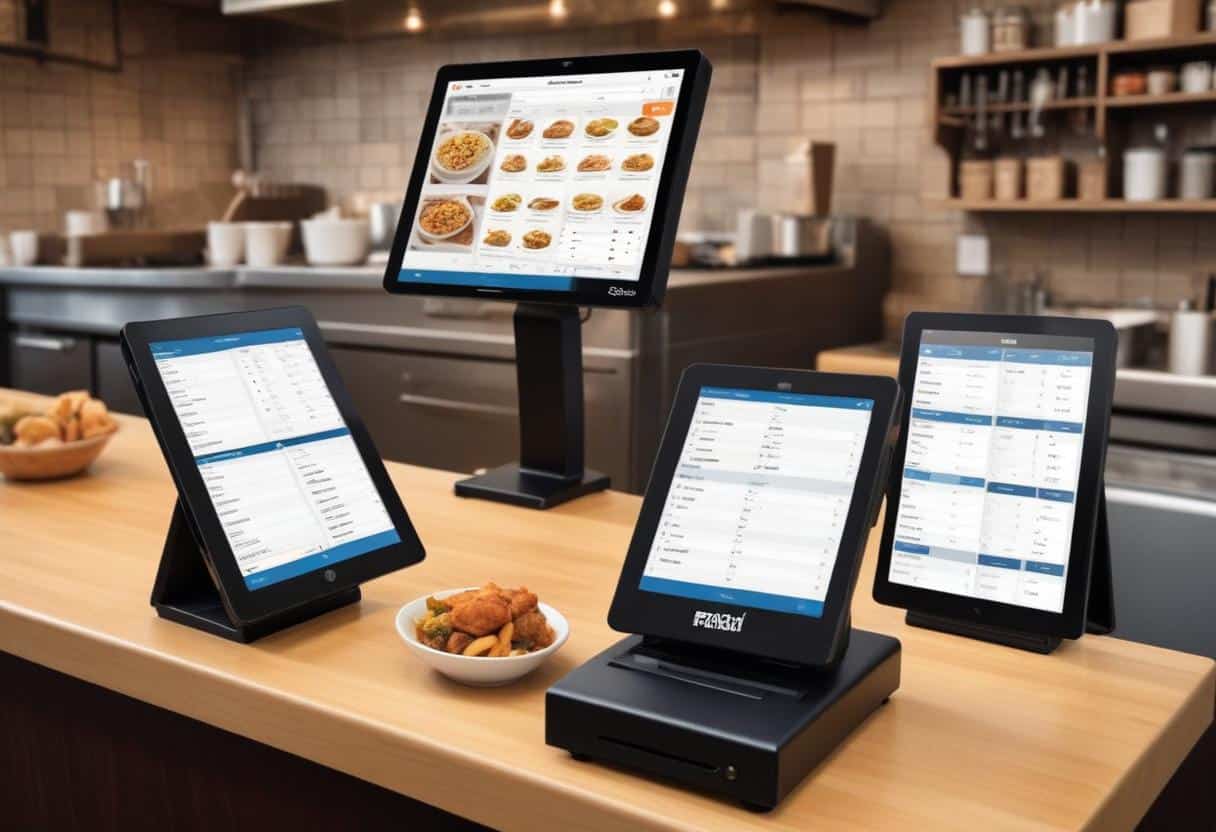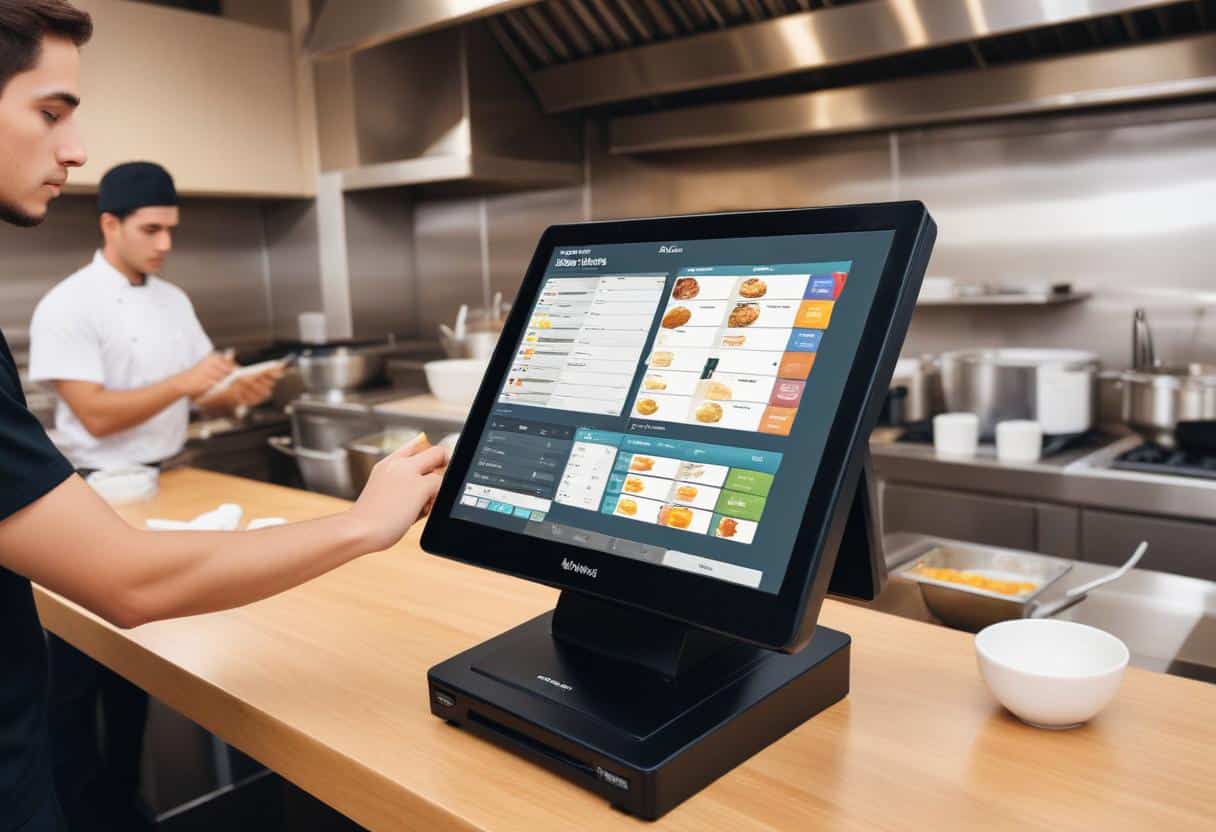In today’s competitive market, a reliable Point of Sale (POS) system is critical for small businesses. It not only streamlines transactions but also enhances customer experience and drives efficiency. A POS system acts as the central hub for processing sales, managing inventory, and tracking customer data. Implementing an efficient POS system can be the difference between smooth daily operations and chaotic business management.
A robust POS system does more than just handle transactions. It integrates with other essential tools, supports invaluable data analytics, and bolsters decision-making processes. Our guide will provide small business owners, retail managers, and restaurant owners with insights on selecting the best POS solution tailored to their unique needs. By understanding key functionalities and considering future growth, businesses can choose a POS system that aligns with their goals and scales with their success. Continue reading to discover how to evaluate hardware options, cost considerations, ease of use, training availability, and industry-specific solutions that can set your business apart from the competition.
Understanding Your Business Needs
First, assess the type and size of your business. A small retail store has different needs compared to a bustling restaurant. For example, retail businesses often require inventory tracking, while restaurants benefit from table management and split billing features. Evaluate the daily transaction volume and peak hours to determine the capacity your POS system should handle.

Identify the key functionalities required for your operations. Prioritize features such as mobile payments, customer relationship management (CRM), and sales reporting based on what drives efficiency and enhances customer experience in your industry. For instance, a clothing boutique might need robust inventory management that includes size, color variations, and reordering alerts.
Consider future growth when choosing a POS system. Opt for scalable solutions that can grow with your business. Look for systems that allow adding new registers or locations easily without significant downtime or cost. If opening another storefront is in your plans, ensure the selected POS software supports seamless multi-location management and real-time data synchronization across all sites.
By focusing on these areas, you lay a solid foundation for selecting a POS system tailored to your unique business requirements. This ensures not only immediate operational enhancements but also long-term adaptability as your business expands.
Hardware and Software Requirements
Selecting the right hardware for a POS system is crucial. Options range from traditional cash registers to advanced touchscreen monitors. Mobile POS devices, such as tablets or smartphones integrated with card readers, provide flexibility for businesses needing mobility. For instance, a food truck may benefit greatly from a mobile tablet POS to process payments anywhere on-site. Additionally, peripherals like barcode scanners, receipt printers, and customer-facing displays enhance functionality based on specific business needs.
Deciding between cloud-based and on-premise systems impacts accessibility and maintenance. Cloud-based systems store data online, offering real-time access from any location and automatic updates without requiring additional IT support. This option suits businesses wanting scalability without investing in extensive infrastructure. On the other hand, on-premise systems keep data locally and might be preferred by businesses with stable locations preferring direct control over their data storage and security measures.
Integration capability with existing business tools ensures streamlined operations. A POS system that syncs seamlessly with accounting software, inventory management solutions, or customer relationship management (CRM) platforms saves time and reduces errors. Consider a boutique retail store integrating its POS with QuickBooks for seamless financial tracking or an integrated inventory system alerting staff when stock runs low. Selecting compatible hardware and software is fundamental to building an efficient ecosystem that supports smooth business operation and growth expansion.
Cost Considerations for POS System for Small Businesses
When selecting a POS system, carefully evaluate the initial investment compared to long-term costs. A significant upfront expense may cover essential hardware like terminals, scanners, and receipt printers. However, opting for a more expensive setup initially could offer better durability and fewer replacements over time. Conversely, some systems come with minimal hardware requirements but might necessitate frequent updates or additional components as your business grows.
Understanding subscription models and fees is crucial. Many modern POS systems operate on a Software-as-a-Service (SaaS) model. This means regular payments – usually monthly or annually – which cover software access, support, and updates. While this spreads out your cost, ensure you know what is included in your plan and how much incremental features or increased usage will add to your monthly fees. For example, adding extra user accounts or advanced analytics can substantially increase costs.
Hidden costs such as maintenance or upgrades can significantly impact your budget if left unaccounted for. Some vendors might charge for regular software updates or hardware servicing outside of the standard warranty period. It’s also essential to consider integration fees with existing tools; transitioning data from old systems can be another unforeseen expenditure. Ensure transparency by asking potential vendors for a detailed breakdown of all possible charges before committing.
A thorough understanding of these cost considerations helps in making an informed decision that balances affordability with functionality and future growth potential. Carefully analyzing these elements ensures you choose a POS system that meets current needs without imposing financial strain down the line.
Ease of Use and Training
Choosing a POS system with a user-friendly interface is crucial for small businesses. An intuitive design reduces the learning curve, allowing employees to quickly grasp essential functions like processing transactions, managing inventory, and generating sales reports. For example, systems that use touchscreen menus and icon-based navigation can simplify tasks and minimize errors. This is especially important in fast-paced environments like retail stores or restaurants, where efficiency directly impacts customer satisfaction.
Training resources and support play a significant role in ensuring successful implementation of any POS system. Look for vendors that provide comprehensive training materials such as video tutorials, user manuals, and live webinars. Access to 24/7 customer support is also critical. It ensures that issues can be resolved promptly without disrupting business operations. For instance, a restaurant owner facing a technical glitch during peak hours should be able to contact support immediately to avoid lost sales.

The time required for staff to become proficient with the new system affects overall productivity during the transition period. A well-designed POS system typically requires minimal training time, allowing staff to focus more on customer service rather than troubleshooting technology. Business owners should consider scheduling regular training sessions and practice drills before going live with the new POS system. By doing so, employees can become confident in their ability to use all functionalities effectively from day one.
Ultimately, investing in an easy-to-use POS system with robust training resources will pay off in improved operational efficiency and higher employee morale. Staff will appreciate a straightforward system that allows them to perform their duties efficiently. Ensuring everyone receives adequate training will also foster a smoother transition and help maintain consistent service levels during changeover periods.
Conclusion: POS Systems for Small Businesses
Understanding the specific needs of your industry when selecting a POS system is crucial. Retail businesses may require robust inventory management features, while restaurants might benefit from table management and integrated kitchen orders. Features tailored for different industries enhance operational efficiency and customer service. Integrations with specialized tools, such as accounting software for retail or reservation systems for hospitality, streamline processes and improve workflows.
Choosing a specialized solution ensures you maximize the benefits of your POS system. Evaluate your business requirements and select a system that aligns with these needs. Invest in a POS system designed for your industry to achieve optimal functionality and support future growth. By doing so, you can ensure a seamless operation that will contribute to the success and expansion of your business.
Working with United Banc Card of TN
If you find yourself wanting to conquer your restaurant, retail shop, look no further thanUnited Banc Card of TN. With their innovative solutions and trustedPOS System services, they will guide you towards financial success. Whether you are asmall business owneror an individual looking to manage your finances better, United Banc Card of TN has the tools and expertise to help. Call us today @615-476-0255




